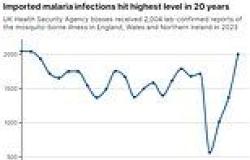Eating a largely vegan diet made up of plant-based foods can slash the risk of heart disease by up to 52 per cent, new research suggests.
A variety of fruit and vegetables, whole grains, low-fat dairy products, skinless fish and chicken, nuts and legumes are all key to staving off health problems later in life.
Conversely, researchers advise that young adults limit saturated fat, salt, red meat, sweets and sugary drinks to prevent heart attacks in middle-age.
While they didn't look at the reason behind the link, previous research suggests plant-based diets can lower your blood pressure, improve cholesterol and help you lose weight - all risk factors for heart disease.
Scroll down for video

Eating a largely vegan diet made up of plant-based foods can slash the risk of heart disease by up to 52 per cent, new research suggests (stock image)
The long-term study, led by scientists at the University of Minnesota School of Public Health in Minneapolis, looked at the diet of some 5,000 people over a 30-year period and whether they developed heart disease.
They were not told what to eat. Instead, the quality of their diet was assessed at the start of the study and then after seven years and 20 years based on the A Priori Diet Quality Score (APDQS).
The APDQS was made up of 46 food groups split into beneficial foods (such as fruits, vegetables, beans, nuts and whole grains); adverse foods (such as fried potatoes, high-fat red meat, salty snacks, pastries and soft drinks); and neutral foods (such as potatoes, refined grains, lean meats and shellfish).
This was done based on their links to heart disease.
People who got higher scores ate a variety of beneficial foods that largely made up a plant-based diet, while those who scored lower ate more adverse foods.
During 32 years of follow-up, researchers found that 289 people involved in the study developed heart disease (including heart attack, stroke, heart failure, heart-related chest pain or clogged arteries).
They also discovered that those who scored in the top 20 per cent on the long-term diet quality score (meaning they ate the most nutritionally rich plant foods and fewer adversely rated animal products) were 52 per cent less likely to develop heart disease.
Meanwhile, between year seven and 20 of the study when the ages of participants ranged from 25 to 50, those who improved their






